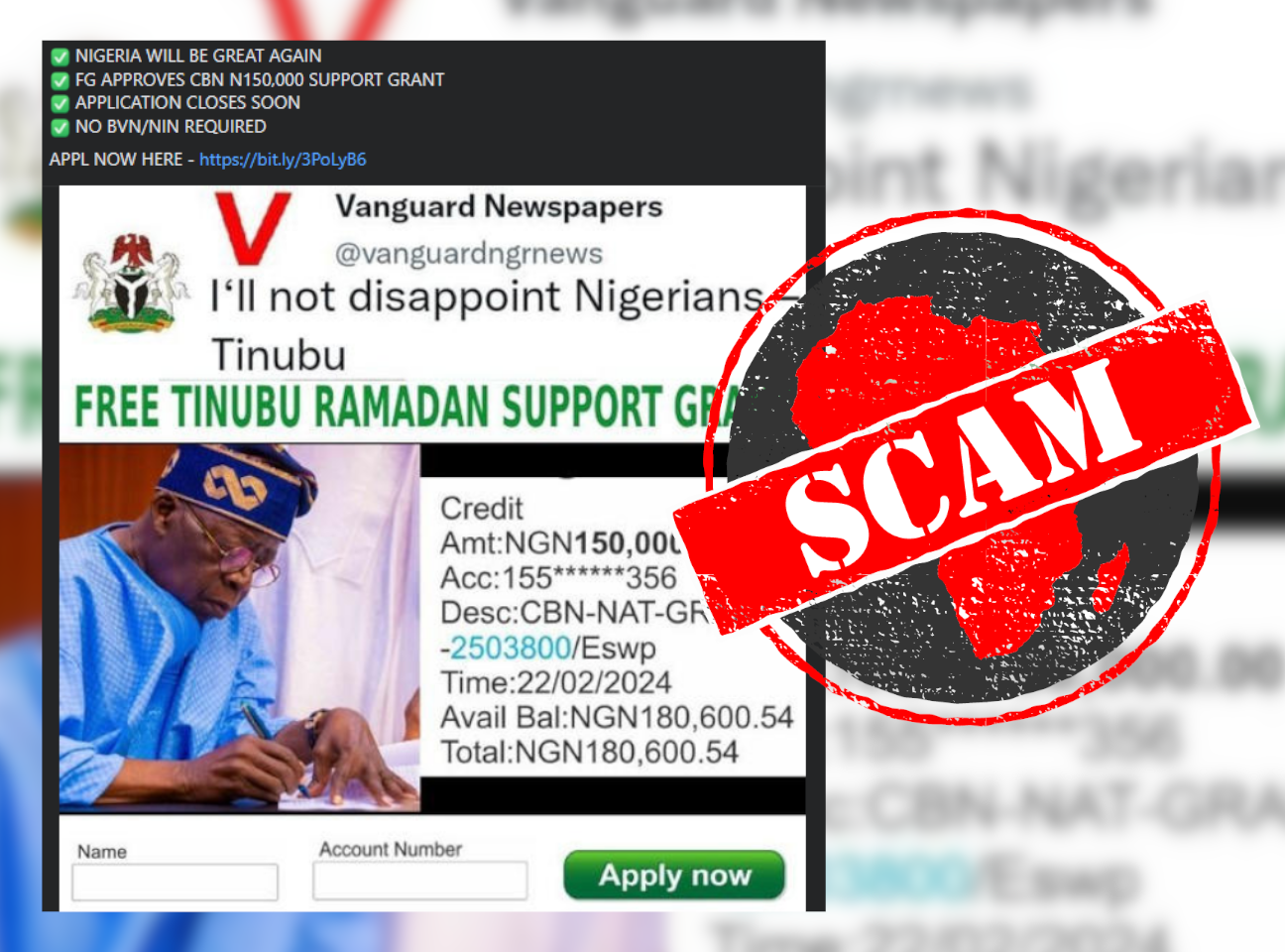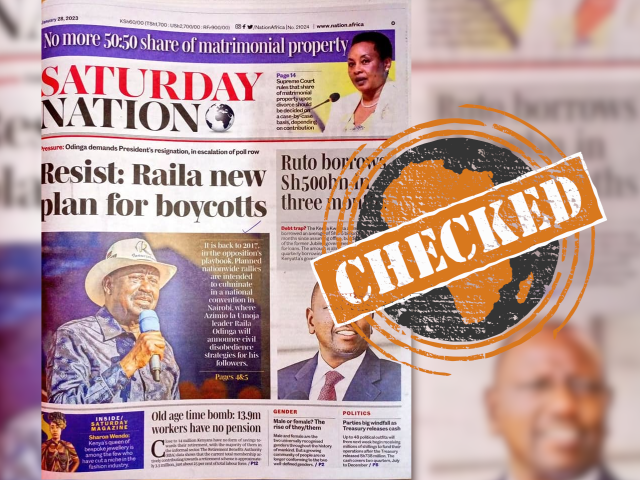IN SHORT: Several Facebook posts claim that the Nigerian government has approved the central bank’s N150,000 support grant. But that’s not true. And the posts link to a deceptive website.
The Nigerian government has approved a “support grant” of N150,000 (about US$116) from the country’s central bank. That’s according to several posts on Facebook.
One of the posts, dated 17 March 2024, was published in a public Facebook group with over 554,000 members. It says “application closes soon” and that no bank verification number (BVN) or national identity number is required.
A BVN is a biometric identification system introduced by the Central Bank of Nigeria (CBN) and meant to curb fraud.
The post includes a link to a website and encourages users to apply for the grant.
It also features a graphic with a photo of Nigerian president Bola Tinubu, the logo and name of the Vanguard newspaper, and a bank notification that appears to show a payment of N150,000.
The same claim can be found on Facebook here, here, here, here and here.
But has the government approved the so-called CBN N150,000 support grant? We checked.

Engagement bait
Africa Check searched the Vanguard’s website for any news of the grant but came up empty. We also couldn't find any news on this from any other credible media house.
The post links to a website headlined: “Presidential Youth Empowerment Scheme 2024.” It’s strange that the site mentions a “N500,000 each to youth and small business enterprise”, but not the “CBN N150,000 support grant”.
It then asks users to enter their full name, bank name and account number. We filled in false information and were taken to the next page where we had to specify our gender.
The final stage has a message that reads: “Share it with 5 Facebook groups or 5 friends on WhatsApp.”
This is a tactic known as engagement bait. These are posts that ask social media users to share, like or comment on posts. This increases the reach of the posts and often drives users to a website, but ultimately offers no reward.
Read our guide to Facebook scams and how to spot them here.
Republish our content for free
For publishers: what to do if your post is rated false
A fact-checker has rated your Facebook or Instagram post as “false”, “altered”, “partly false” or “missing context”. This could have serious consequences. What do you do?
Click on our guide for the steps you should follow.
Publishers guideAfrica Check teams up with Facebook
Africa Check is a partner in Meta's third-party fact-checking programme to help stop the spread of false information on social media.
The content we rate as “false” will be downgraded on Facebook and Instagram. This means fewer people will see it.
You can also help identify false information on Facebook. This guide explains how.





Add new comment